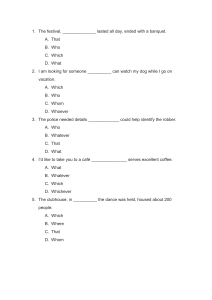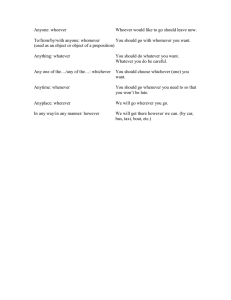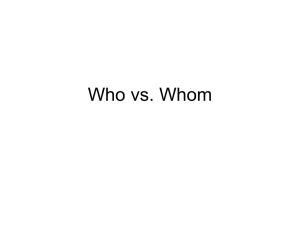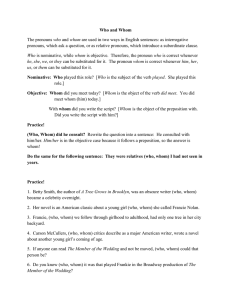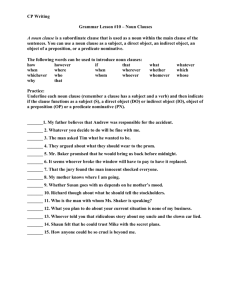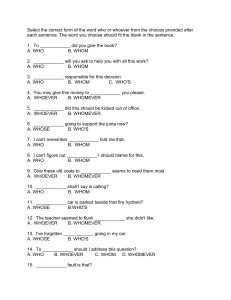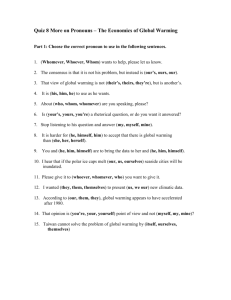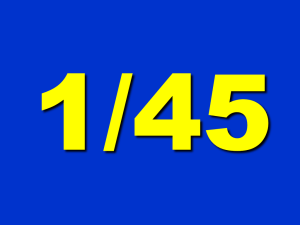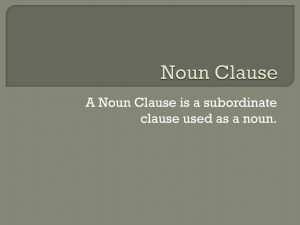Who vs. Whom Grammar Test: Improve Your English Skills
advertisement
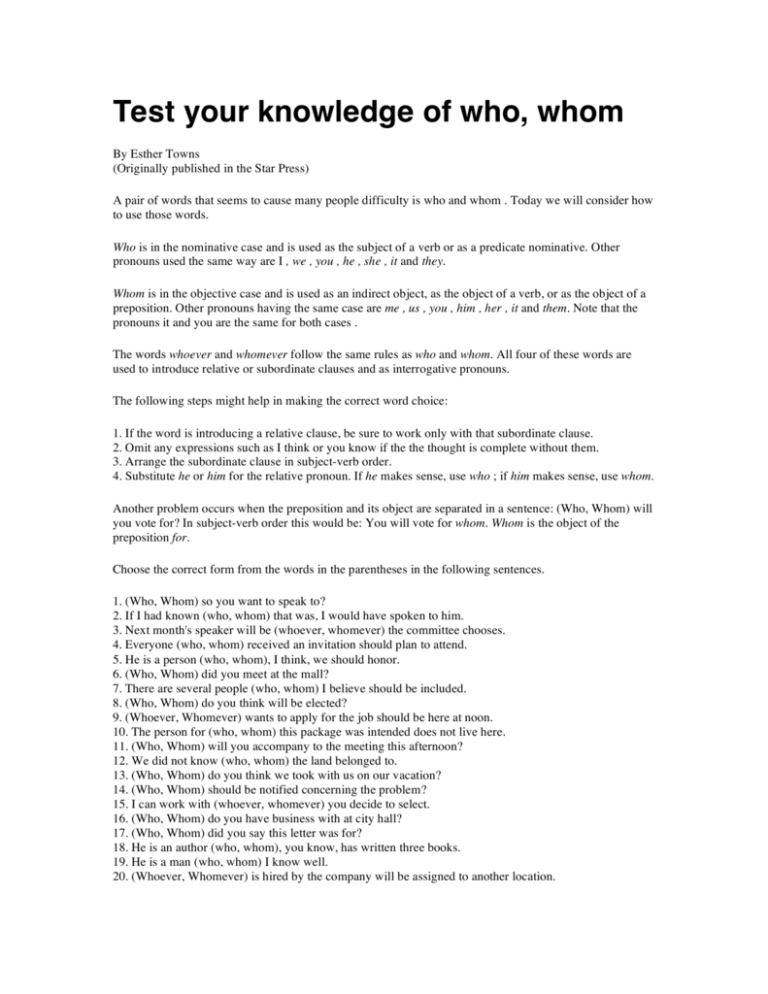
Test your knowledge of who, whom By Esther Towns (Originally published in the Star Press) A pair of words that seems to cause many people difficulty is who and whom . Today we will consider how to use those words. Who is in the nominative case and is used as the subject of a verb or as a predicate nominative. Other pronouns used the same way are I , we , you , he , she , it and they. Whom is in the objective case and is used as an indirect object, as the object of a verb, or as the object of a preposition. Other pronouns having the same case are me , us , you , him , her , it and them. Note that the pronouns it and you are the same for both cases . The words whoever and whomever follow the same rules as who and whom. All four of these words are used to introduce relative or subordinate clauses and as interrogative pronouns. The following steps might help in making the correct word choice: 1. If the word is introducing a relative clause, be sure to work only with that subordinate clause. 2. Omit any expressions such as I think or you know if the the thought is complete without them. 3. Arrange the subordinate clause in subject-verb order. 4. Substitute he or him for the relative pronoun. If he makes sense, use who ; if him makes sense, use whom. Another problem occurs when the preposition and its object are separated in a sentence: (Who, Whom) will you vote for? In subject-verb order this would be: You will vote for whom. Whom is the object of the preposition for. Choose the correct form from the words in the parentheses in the following sentences. 1. (Who, Whom) so you want to speak to? 2. If I had known (who, whom) that was, I would have spoken to him. 3. Next month's speaker will be (whoever, whomever) the committee chooses. 4. Everyone (who, whom) received an invitation should plan to attend. 5. He is a person (who, whom), I think, we should honor. 6. (Who, Whom) did you meet at the mall? 7. There are several people (who, whom) I believe should be included. 8. (Who, Whom) do you think will be elected? 9. (Whoever, Whomever) wants to apply for the job should be here at noon. 10. The person for (who, whom) this package was intended does not live here. 11. (Who, Whom) will you accompany to the meeting this afternoon? 12. We did not know (who, whom) the land belonged to. 13. (Who, Whom) do you think we took with us on our vacation? 14. (Who, Whom) should be notified concerning the problem? 15. I can work with (whoever, whomever) you decide to select. 16. (Who, Whom) do you have business with at city hall? 17. (Who, Whom) did you say this letter was for? 18. He is an author (who, whom), you know, has written three books. 19. He is a man (who, whom) I know well. 20. (Whoever, Whomever) is hired by the company will be assigned to another location. The correct answers are as follows: 1. whom; 2. who; 3. whomever; 4. who; 5. whom; 6. whom; 7. who; 8. who; 9. whoever; 10. whom; 11. whom; 12. whom; 13. whom; 14. who; 15. whomever; 16. whom; 17. whom; 18. who; 19. whom; and 20. whoever. Take of 5 points for each incorrect answer. The grading scale is 90-100, A; 80-89, B; 70-79, C; 60-69, D; below 60, F. Courtesy of Esther Towns (copyright 1998), The Star Press, Muncie, Ind.
